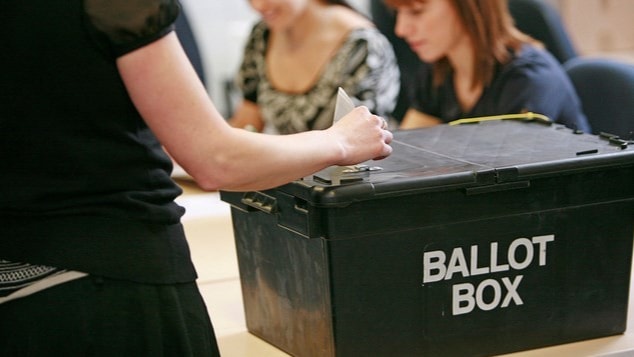
Annual Canvass begins in Reading
- Thousands of Reading households will receive letters this week to make sure they are registered to vote
- EU citizens living in the UK are being contacted about changes to voting rights
Residents are being encouraged to make sure their electoral registration details are up to date to make sure they do not lose their voice on important decisions.
The new annual canvass process begins in Reading this week with letters being sent to households across the town. It is an important opportunity for residents to make sure they can vote at future elections.
The process ensures the Council can keep the electoral register up to date, identifying any residents who are not registered and encouraging them to do so.
Changes to Voting Rights for EU Citizens
Following the UK’s departure from the European Union, voting rights for EU citizens have changed and the Council is required to complete a review to determine who is eligible to remain on the electoral register.
The EU Citizen review started on 31 July, with letters being sent out to those EU citizens where further information is required to establish if they can remain on the register. It is important to follow the steps in the letter to ensure eligible EU citizens do not lose their right to vote.
A telephone canvass will start from mid-September to capture anyone who has not responded.
To remain registered to vote, an EU citizen living in England, who is not a Commonwealth or Irish citizen, must be either:
- a citizen of Denmark, Luxembourg, Poland, Portugal, or Spain who has permission to enter or stay in the UK, Channel Islands or Isle of Man, or who does not need permission.
- a citizen of any other EU country who on or before 31 December 2020 had permission to enter or stay in the UK, Channel Islands or Isle of Man, or who did not need permission, and this has continued without a break.
Michael Graham, Electoral Registration Officer at Reading Borough Council, said:
“It is really important that residents keep an eye out for messages from the Council, so we can ensure we have the right details on the electoral register for every address in Reading.
“Some households will receive their first letter (known as ‘Canvass Communication A letter’) from the Council this week. This is only being sent to those households where we have been able to match details with records from the Department of Work and Pensions. People will only need to respond to this letter if the electoral register information is incorrect. The quickest and easiest way to reply is online by following the details given in the letter.
“At the end of August some households will receive a ‘Canvass Communication B letter’ from the Council. This communication will be sent to households where we have not been able to match details. People will need to respond to this letter to ensure the electoral register information is correct. Again, residents are encouraged to reply online following the details and instructions given in the letter.
“If you are not currently registered, your name will not appear in the communications we send. If you want to register, the easiest way is to do so online at www.gov.uk/register-to-vote or we will send you information explaining how to do this in the post.”
People who have moved house recently are particularly encouraged to look out for the voter registration messages from Reading Borough Council and check the details. Research by the Electoral Commission indicates that recent home movers are far less likely to be registered than those who have lived at the same address for a long time. Across Great Britain, 92% of people who have been at their property for more than 16 years will be registered, compared to 36% of people who have lived at an address for less than a year.
Information on registering to vote is available on the Electoral Commission website https://www.electoralcommission.org.uk/
Residents with questions about their registration status can contact the council’s Electoral Services team at elections@reading.gov.uk or by calling 0118 937 3717.
